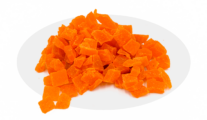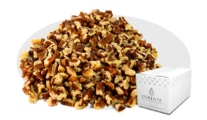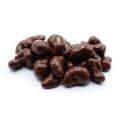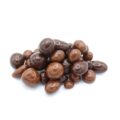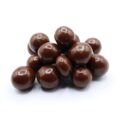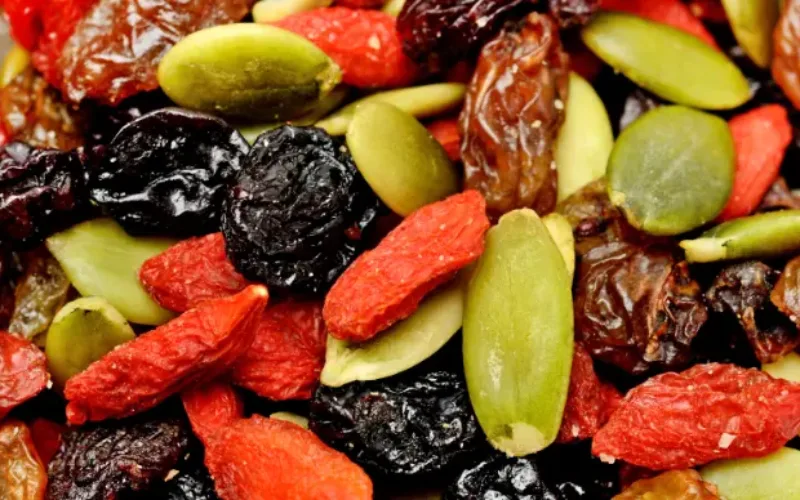Written By Sam Henselijn
Can Dogs Eat Chocolate? If you’re like most people, chocolate is likely one of your top indulgences. Who can resist its rich, delectable taste? Not to mention, for humans, chocolate, especially dark chocolate, comes with some beneficial nutritional qualities. It seems like a treat that everyone can enjoy without worry. But does this apply to dogs as well? Let’s cut to the chase here: ABSOLUTELY NOT!
Chocolate is toxic and can be deadly for our furry friends.
Why is chocolate toxic for dogs?
There are two main components in chocolate that make it toxic
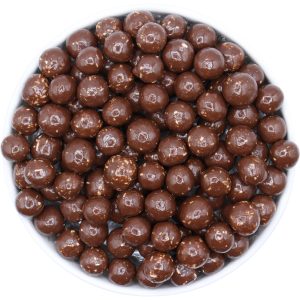
for dogs. The first one is caffeine. All types of chocolate contain at least some caffeine, although some are more caffeinated than others. Caffeine acts as a stimulant that can cause your dog’s heart to race too quickly. Not surprisingly, this may result in serious health problems. So no chocolate for gods – or coffee.
The second, and most dangerous chemical present in chocolate is theobromine. Human bodies can metabolize theobromine easily, but dogs don’t. They process it painfully slowly. This allows for these toxic compounds to build up in their systems, which can be poisonous and even fatal.
How much chocolate is dangerous?
That depends on two main factors:
- The size of your pup. Typically, bigger dogs can tolerate more chocolate than smaller dogs.
- How much theobromine they’ve eaten, which varies from chocolate to chocolate.
When it comes to toxicity, not all chocolate is the same. Bakers chocolate and cocoa powder, for example, are considered to be the most toxic due to the higher percentage of cacao. Milk chocolate and white chocolate being a little less so. So yes, the consequences of your dog eating chocolate is different based on the type of chocolate they consumed.
Signs of chocolate poisoning – Can Dogs Eat Chocolate?
Now that you understand why chocolate is such a big risk for dogs, it’s important to be able to identify when your friend may be suffering from this poisoning.
Dogs with chocolate poisoning may initially be only mildly sick, have stomach pain or an upset stomach. You should be on the lookout for vomiting and diarrhea. These two symptoms are usually the earliest signs of chocolate toxicity in dogs.
Theobromine is a stimulant, so it can cause your dog to become excitable or develop muscle twitching, tremors, etc. This can lead to a high heart rate and potentially cardiac arrest.
Other signs can include excessive thirst,
dribbling, and fast breathing. If too much chocolate is eaten then the effects can be severe or even fatal.
How long does it take for a dog to show symptoms?
Dogs usually start to show signs of discomfort around two to four hours after they’ve eaten chocolate. Occasionally it can take up to 24 hours.
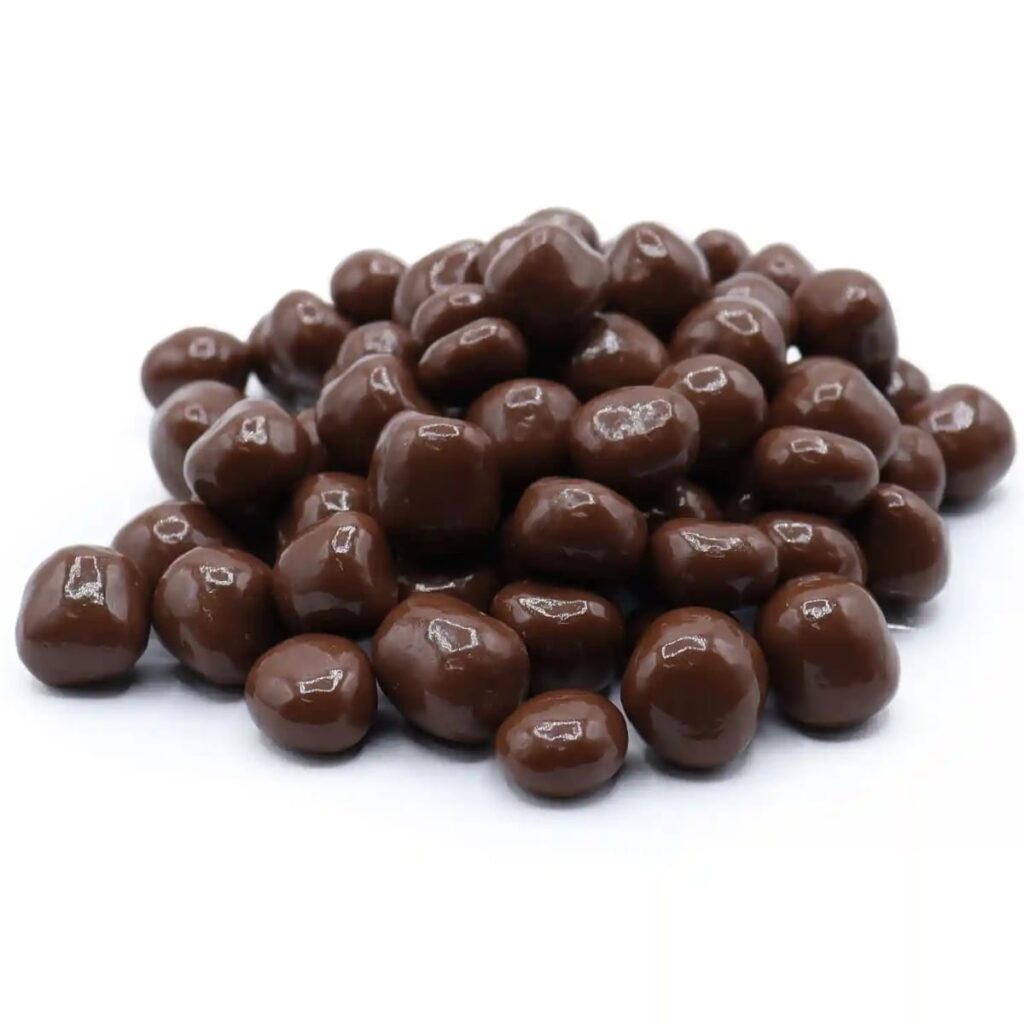
How long does it take to recover from chocolate poisoning?
Expect effects to last for around three days. But how long a dog is sick for depends on how much chocolate they’ve ingested, how ill they’ve been and what treatment the vet has used.
Are there long-term effects of chocolate poisoning?
Long-term effects are unlikely to occur and most dogs make a full recovery after becoming unwell from eating chocolate. In extremely rare instances, dogs may develop long-term secondary effects from serious complications, such as brain damage caused by prolonged seizures.
What to do if your dog ate chocolate
If you know your pet has eaten chocolate, contact the emergency vet right away. If caught early on, the veterinarian may be able to get your dog to vomit the chocolate up. That would eliminate or lessen the likelihood of severe clinical signs.
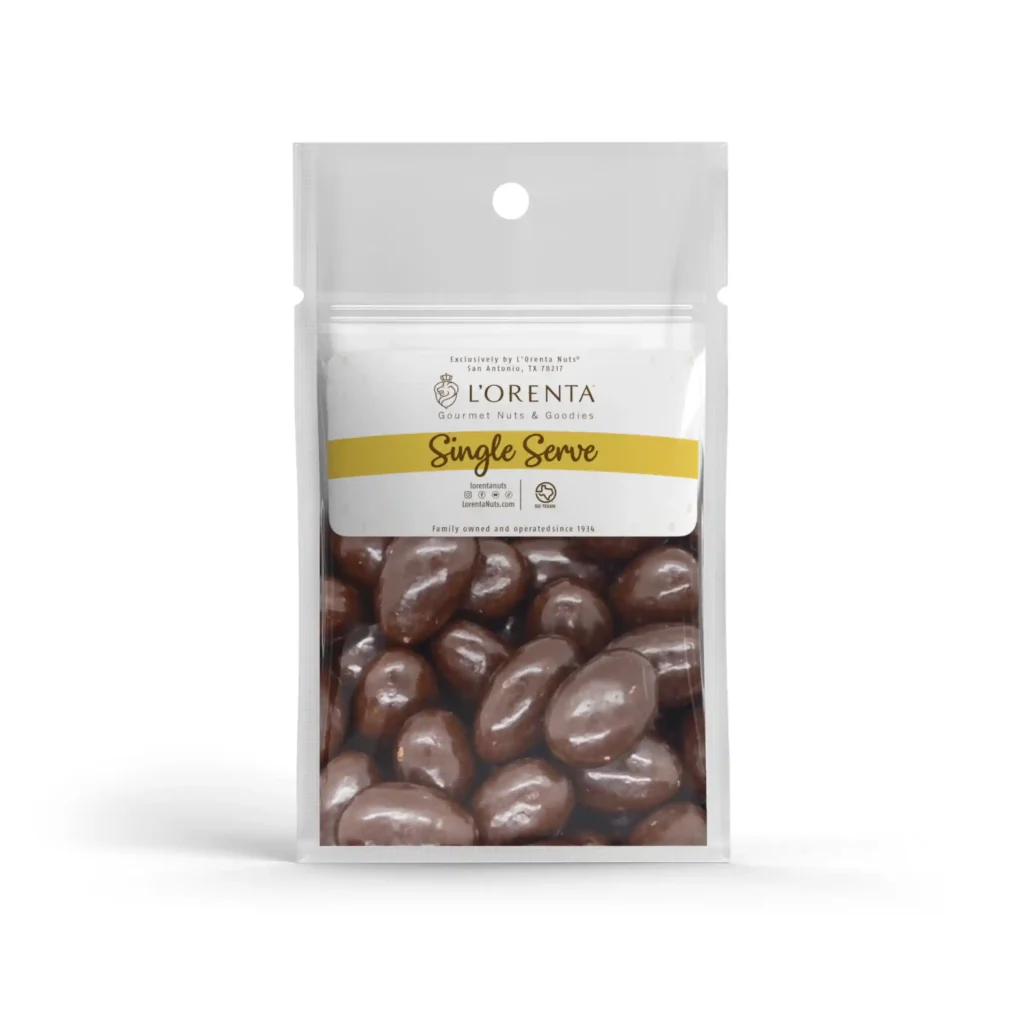
The sooner you respond to your pup’s symptoms, the more likely it will be that your dog can make a full recovery from the situation.
Beware of sugar-free chocolate
Sugar free chocolate may present double the risk! That’s because they may contain xylitol, an artificial sweetener that is especially poisonous to dogs. Xylitol can cause your dog’s blood sugar level to drop to dangerous levels and can even cause liver failure.
Keep all chocolate out of paws reach
Dogs have an incredible sense of smell, and as we all know, they can be very determined. So the best course of action is to keep your stash somewhere you know they can’t reach!
Chocolate delights
So now you know chocolate is no bueno for dogs, but the good news is you’re still allowed to enjoy it! In moderation, of course. Chocolate lover? Well then you need to try these. If you’re into nuts with chocolate, check out our coconut white chocolate almonds, milk chocolate almonds, and milk chocolate cashews. Something a little more sophisticated, perhaps? Have a look at our dark chocolate and prosecco cordials!
FAQ Can Dogs Eat Chocolate?
Can dogs eat chocolate?
No, chocolate is toxic to dogs and can be deadly. Dogs should never be given chocolate in any form.
Why is chocolate toxic for dogs?
Chocolate contains caffeine and theobromine, two compounds that are toxic to dogs. Dogs process theobromine much more slowly than humans, allowing toxic levels to build up in their system.
What are the signs of chocolate poisoning in dogs?
Symptoms of chocolate toxicity in dogs can include vomiting, diarrhea, excessive thirst, panting, restlessness, increased heart rate, muscle tremors, seizures, and in severe cases, death.
What should you do if your dog eats chocolate?
If your dog has eaten chocolate, contact an emergency veterinarian immediately. Early intervention may involve inducing vomiting to prevent more severe symptoms.
Sam Henselijn Author’s Biography – Meet L’Orenta Nuts CEO
Copyright 2024 L’Orenta Nuts
L’Orenta Nuts proudly holds the SQF food safety certification, symbolizing our unwavering dedication to upholding the highest standards of food safety and quality. This certification guarantees that our products undergo rigorous scrutiny, ensuring transparency, traceability, and adherence to global food safety regulations for the utmost consumer confidence.
L’Orenta Nuts has the HACCP (Hazard Analysis and Critical Control Points) certification is a systematic approach to identifying, evaluating, and controlling food safety hazards. It ensures that food products are produced and handled in a manner that minimizes risks and complies with safety standards.
Our GMP (Good Manufacturing Practices) certification ensures that a manufacturing facility adheres to comprehensive quality and safety standards while producing pharmaceuticals, food, and other consumer goods, promoting consistency, quality, and compliance with regulatory requirements.
L’Orenta is an FDA-approved manufacturing facility and has met the rigorous standards set by the U.S. Food and Drug Administration. It demonstrates compliance with regulations, ensuring the production of safe and high-quality food products.




